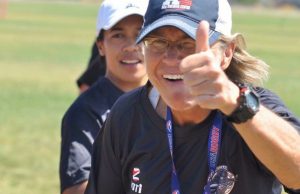- Home
- About
- Contributors
- DSR Teams
- Baton Rouge Rugby
- Baton Rouge Posts
- Baton Rouge Photos
- Battleship Rugby
- Battleship Rugby Posts
- Battleship RFC Photos
- Birmingham RFC
- Hammond
- Jackson RFC
- Louisiana Exiles Photos
- Louisiana State University
- LSU Posts
- Loyola University
- Mississippi State
- Montgomery RFC
- New Orleans RFC
- New Orleans Posts
- New Orleans Photos
- Okaloosa RFC
- Panama City Beach RFC
- Pensacola RFC
- Southern Mississippi
- Spring Hill College
- Tallahassee RFC
- Troy University
- Tulane University
- Tulane Posts
- U of West Florida
- University of Louisiana
- University of New Orleans
- University of South Alabama
- Internationals
- History
- Visitors
USA 7s Sides, June 2014 : No Olympic Checkered Flag on the Horizon
The 2013-14 men and women’s international sevens series final tournaments ended in May with the men beating Japan 36-12 to take 12th place in London and the women defeating Russia 27-12 to finish 5th. Realistically on any given day that is about where these sides rank in the world, and there are no medals for these places.
Next year qualification for the 12 Olympic spots begins in earnest. Brazil has claimed automatic spots for their men and women’s teams by virtue of being the host nation. The next four spots will be claimed by the top four ranked teams at the end of the IRB/HSBC Sevens World Series tournaments in May a year from now. The chances are very good that the teams that finished in the top 4 spots this year will repeat. That would mean New Zealand, South Africa, Fiji, and England would qualify for the men’s Olympics and New Zealand, Australia, Canada, and England for the women’s. (If England qualifies, they form a Great Britain team which could include Welsh and Scottish players. Ireland could still qualify separately.) Between June and September of 2015 the next 6 spots will be filled by the winners of regional tournaments. The USA is in the North American & Caribbean Rugby Association (NACRA). The most highly ranked team in this association is Canada, and both the men and women have an incredibly hard time beating the Canadians.
Luckily for the USA women the Canadian women will probably qualify for the Olympics by being one of the top 4 teams in the world series tournament next year, so they won’t be at the NACRA Olympic qualifying tournament in 2015. The women Eagles have had little trouble defeating any of the emerging Caribbean sides or Mexico in the past couple of years. At the NACRA 2013 sevens tournament a Canadian side made up of b-team players defeated Mexico in the final 51-0. The USA, to conserve resources, didn’t send a women’s team.
Unfortunately for the USA men’s team the Canadians, although improving rapidly, will probably not crack a top 4 spot in the sevens world series tournaments next year. Barring a fluke USA victory over Canada in the 2015 NACRA 7s Tournament, the USA to qualify will have to win the play-off (repechage) tournament that will be in late 2015 or early 2016 . To figure out who will be in this tournament with the U.S. Eagles we need to predict who wins the other regional tournaments. The other continental regions are: Africa, Asia, Europe, Oceania, and South America. If you take the current leading country in the sevens world series tournaments and remove the top 4, the regional winners would be Kenya, Japan, France, Australia, Argentina.
So who would be in the 16 team play-off tournament? By current world standings* and if all the above crystal balling is correct:
3 teams from Africa – Namibia, Zimbabwe, & Morocco
3 teams from Asia – Hong Kong, South Korea, & Philippines
4 teams from Europe – Russia, Portugal, Spain, & Romania
2 teams from North America – USA & Mexico
2 teams from Oceania – Samoa & Tonga
2 teams from South America – Uruguay & Chile
*very loose use of world rankings based on 15 a-side play mixed with some info on nations that are better at 7s.
This would be a one-off tournament with the ultimate trophy being a ticket to the Olympics. Wow!! The only team at the play-off tournament that is currently ranked about the USA in 7s is Samoa, but it is a tournament that will decide if your country will go to the Olympics. To say, “Anything could happen!” seems too much of a cliché to use.
There is a good chance the USA men will not be competing in rugby at the 2016 Olympics. Is there anyone to blame? There are the beginning cries for a new coach. There are the resurging moans about needing NFL level athletes. There are cycling criticisms of how athletes are chosen for the national team. In a country that is very much wealth driven I haven’t heard, “We need more money.” Maybe that is because there are countries like Fiji who are medal contenders on far less than we currently pump into our Olympic training. Many say the difference is that rugby is a part of the cultural fabric of Fiji. In the USA wealth is part of our cultural fabric. To change attitudes in current top level contact sport athletes and thus begin to change our national relationship with rugby there will have to be a bigger payday than the top salaries USA players are making in European leagues (around $170,000). The National Guard is reportedly budgeting to give $32,000,000 to support NASCAR and $12,000,000 to support an Indy race car driver, and they are not really sure if they get any recruits from those ‘investments’. Imagine if all $48,000,000 went to support 12 men and 12 women athletes. Would our rugby culture change?




You must be logged in to post a comment Login